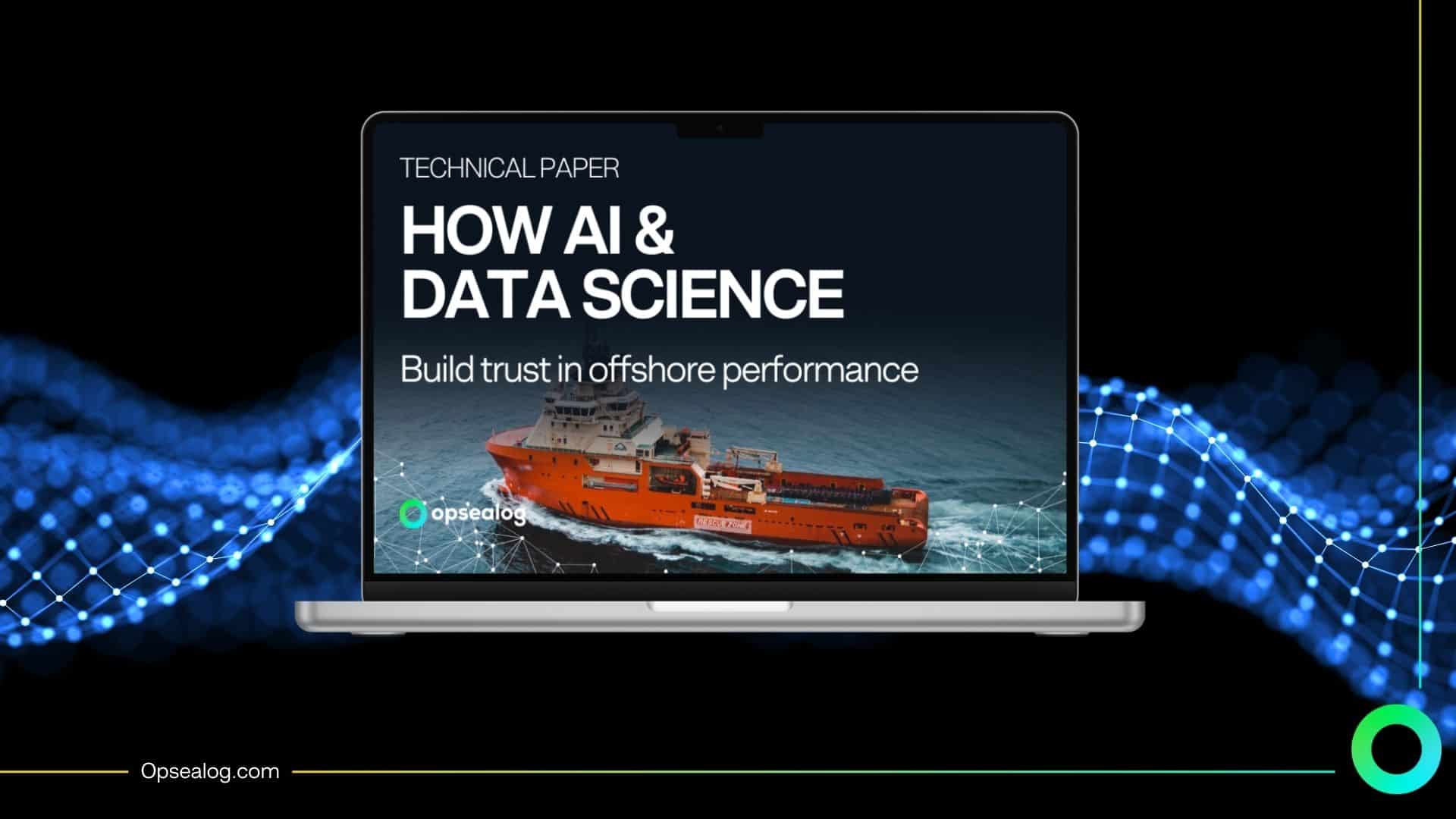According to Gartner’s 2023 AI in Maritime Operations report (source), organizations that integrate AI and data science in their decision support see efficiency gains of up to 25%. Our paper shows how this applies specifically to offshore supply vessels.
Modern offshore vessels generate massive volumes of operational information, but without the right expertise, this data often remains fragmented, inconsistent, or underused. In this technical paper, Opsealog demonstrates how advanced data science and AI can transform raw inputs into actionable intelligence that drives measurable fuel, emissions, and operational performance gains.
Working with over 1,000 offshore vessels worldwide, we share proven methodologies, real-world use cases, and the technology that makes it possible to trust your data for critical operational decisions.
Inside this technical paper, you will learn:
- How to turn messy logs into reliable intelligence using advanced processing, model training, and maritime expertise.
- Real-world case studies showing efficiency gains, optimal speed recommendations, and performance benchmarking across sister ships.
- How AI-powered decision-support platforms help crews and shore teams act with confidence.
- The role of continuous model retraining and explainability in maintaining trust in your KPIs.
Who Should Read This
This technical paper is designed for:
- Offshore fleet managers and superintendents
- Charterers and shipowners in oil & gas, offshore wind, and maritime logistics
- Operations and sustainability teams are working on fuel efficiency and emissions reduction
- Anyone looking to understand how AI and maritime expertise combine to deliver measurable performance improvements
Download the Technical Paper
Fill out the form below to receive your free copy of “Data Science and AI for Offshore Vessel Performance”.
About Opsealog
Opsealog provides Efficiency as a Service for the offshore maritime industry. Combining software, maritime expertise, and data science, we help operators turn raw vessel data into reliable, actionable insights that improve operational efficiency and environmental performance.

